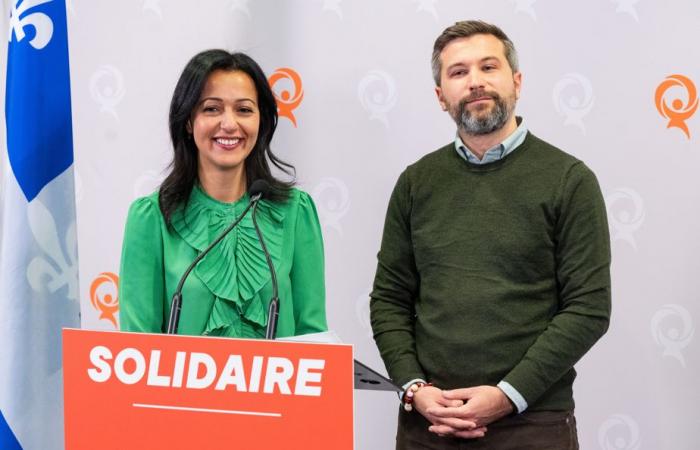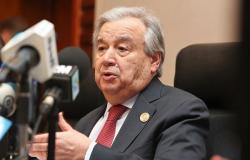Québec solidaire has given itself the power to impose the gender of candidates in constituencies, with the aim of achieving parity between men and women in the Québec solidaire delegation.
Posted at 4:21 p.m.
Updated at 5:40 p.m.
At the congress on Saturday, party members voted for an amendment to the party statutes allowing the National Council “to adopt criteria which determine the representativeness of people who can stand as candidates in general or partial elections”.
The party leadership could also “impose on a local association the type of admissible candidatures for general or partial elections with the aim of achieving parity of the candidatures of the Québec solidaire deputation”.
“We saw regions where, during the general election, there were three men in three winnable constituencies,” noted QS delegate and 2022 candidate Catherine Cyr-Wright.
I am a woman, I was a candidate, I was nominated against a man. I wasn’t afraid. But it wasn’t fair. We don’t have the same responsibilities. We have care, close assistance, family and parental responsibilities, we do not have the same income. People don’t have the same perception of women in politics. We must impose gender, if we really are a feminist party, and I hope that we are still a feminist party.
Catherine Cyr-Wright, delegate of Québec solidaire
The original proposal provided that this power would only be used as a last resort, but this expression was deleted. The debate was launched in December 2023, when QS decided to temporarily ban men from standing as candidates in future by-elections, until the party puts in place a “formal and permanent mechanism favoring the achievement parity within the caucus.
At the microphone, activists deplored the fact that eight of the 12 deputies from Québec solidaire were men. During the Jean-Talon by-election, the party executive supported the candidacy of Christine Gilbert, but the members of the constituency instead chose Olivier Bolduc.
Real boss
Among the other points raised during this congress where Québec solidaire is dusting off its statutes – its “internal constitution”, explained Gabriel Nadeau-Dubois in the morning – the co-spokespersons of Québec solidaires will now be elected by universal suffrage of party members .
Then, it is the members of the party who will decide, in congress, one year before the election, the spokesperson who will be “aspiring prime minister” and parliamentary leader. This would be the person who would have a prevalent role in the electoral campaign, and who would participate in the leaders’ debate. Ruba Ghazal and Gabriel Nadeau-Dubois could still come to an agreement and present a choice before this conference.
Activists rejected several amendments which aimed to limit the number of terms that a co-spokesperson could serve, or to include an alternation between men and women in the position of “aspiring prime minister”. Delegates argued that former MP Françoise David should have left her position as co-spokesperson much earlier, for example.
The party also adhered to the electoral law to have the right to have “leadership races” in due form, and thus be able to collect donations. They achieve this by entrusting the role of true leader in the eyes of the law to one of the two co-spokespersons, even if in fact it is only an administrative role.






